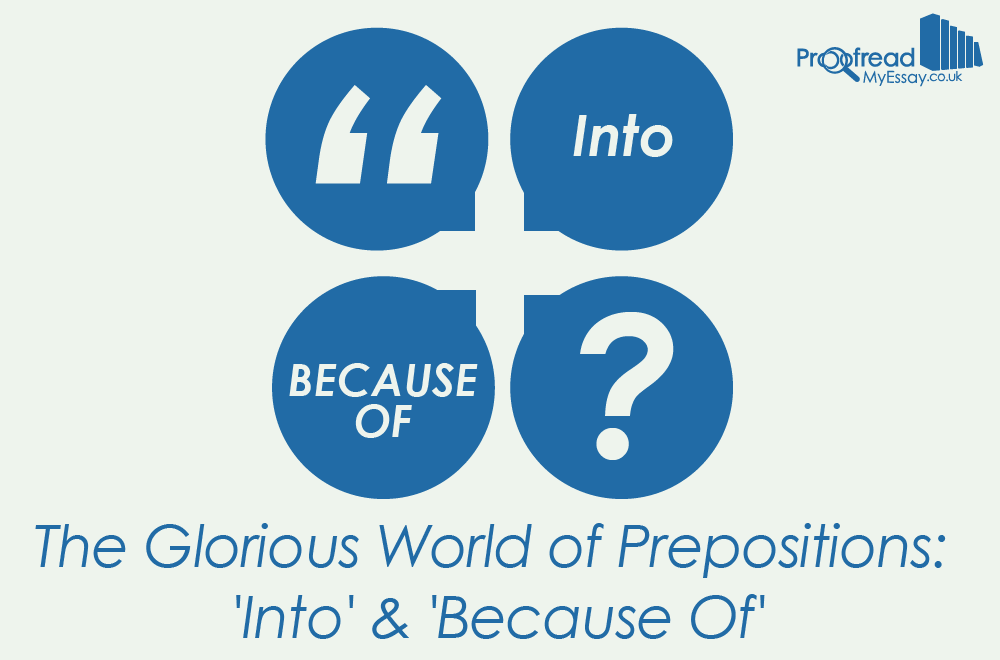Prepositions are used to show the relationship between other words in a sentence, making them essential for communicating clearly in your written work. Here we take closer look at two examples: ‘into’ and ‘because of’.
Into (Movement and Change)
The word ‘into’ has two main meanings. The first involves movement, such as when describing something entering or travelling towards something else:
She dived into the pool.
They drove off into the sunset.
This sense of ‘into’ can also be used to describe reaching a specific point in time (‘he worked deep into the night’) or investigating a particular subject (‘we inquired into marketing trends’).
The second important use of this preposition is to describe a change in something’s state. This can be physical, but may also be more abstract, such as language or a mental state:
Left out in the sun, the snowman soon turned into a puddle.
Since her audience couldn’t speak English, she translated it into German.
Into or In To?
One thing to look out for is the difference between ‘into’ and ‘in to’, since when a verb with ‘in’ (e.g. ‘hand in’ or ‘move in’) is followed by ‘to’, the ‘in’ and ‘to’ should be kept separate:
I handed my work in to the teacher.
Find this useful?
Subscribe to our newsletter and get writing tips from our editors straight to your inbox.
Here the ‘in’ is part of the verb phrase ‘handed my work in’, not the preposition ‘into’; saying that you handed your work ‘into the teacher’ would imply you were putting it inside them!
Because Of (Due to)
When used as a preposition, ‘because’ is followed by ‘of’ and used to give a reason or justification for something, making it equivalent to saying ‘due to the fact that’. Like all prepositions, ‘because of’ should be followed by a noun phrase or an ‘-ing’ verb:
The experiment will need to be repeated because of inconsistencies in the results.
New sources are required because of increasing demand.
Because or Because Of?
The other main use of ‘because’ is as a conjunction. Its meaning as a conjunction is still a way of giving a reason for something, but since ‘because’ by itself is not a preposition the sentence structure changes a little.
When used as a conjunction (without ‘of’), ‘because’ should be followed by a subject and a verb:
The crowd applauded because he danced.
Both ‘because’ and ‘because of’ are useful for explaining your ideas clearly, so it’s important to use each form correctly.
